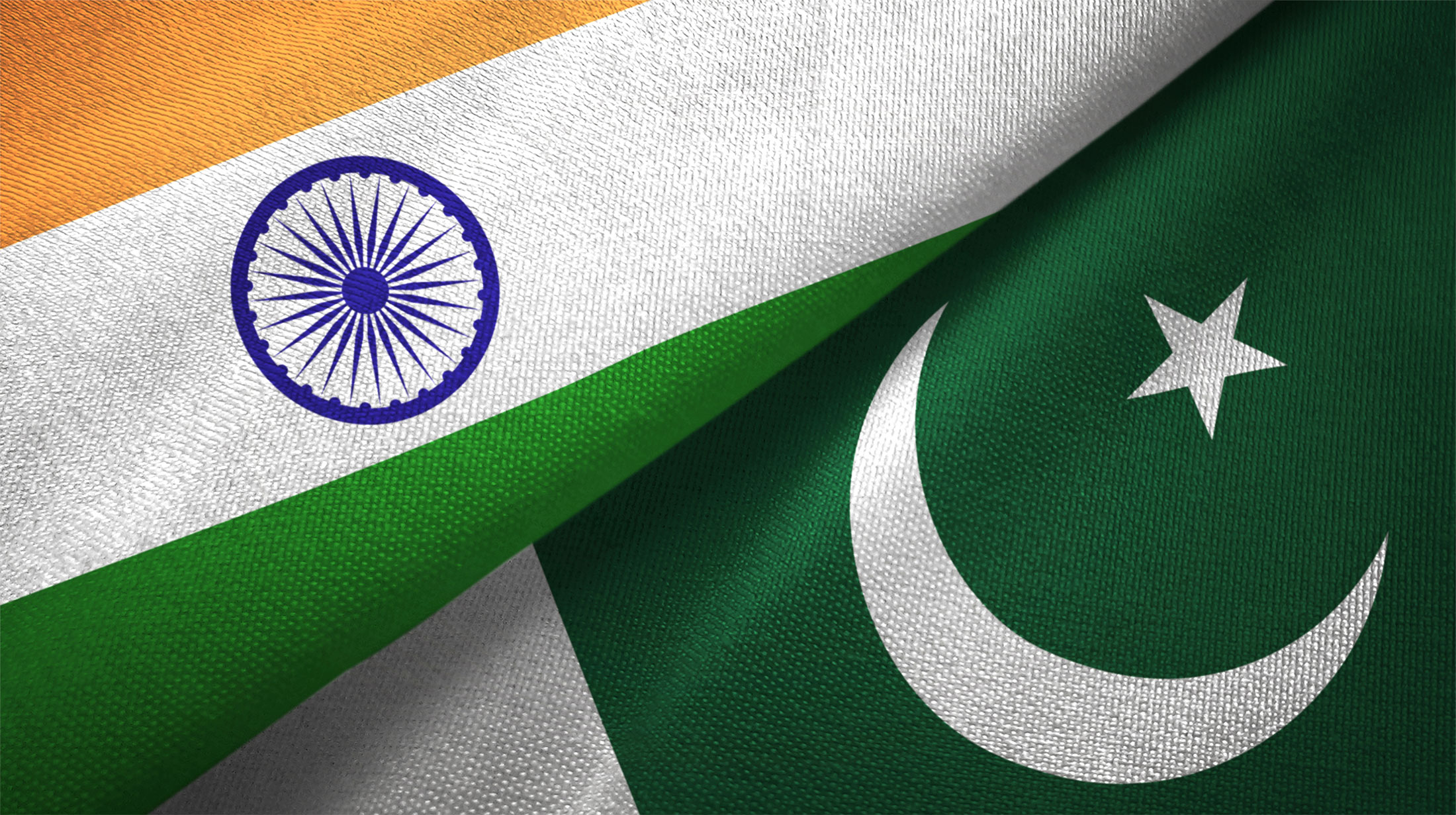WAR WIDENS IN THE MIDDLE EAST
COMMENT: Israel may be calling them “small, tactical incursions,” but in fact, the invasion of southern Lebanon and the purging of as much Hizballah infrastructure, personnel, and weapons from the Litani River southwards has begun as has, in fact, the broader war.
This is the third such attempt to mitigate the near constant threat from its northern border which dates back over more than four decades. According to a well-placed British source, it is quite clear now that Netanyahu and his hardline government have decided that nothing and no one will stop Israel from taking advantage of what it sees as the best opportunity it may have for the foreseeable future to putting a stop to the constant threats posed by three relentless enemies, all of whom seek its destruction:
Hamas: The organization is on the ropes, Netanyahu will not give ground against these perpetrators of the October 7 massacres until Hamas’ current leader, Yahya Sinwa, is dead or captured – regardless of the unremitting human costs of innocent Palestinian lives. Reconstruction in Gaza will be years in the making, at best.
Hizballah: While conventional wisdom had always said that Israel could not fight a two-front war, it appears ready to engage on at least three fronts, if one puts Iran into the frame – but serially, rather than at the same time. After the last war of 2006, Hizballah went on to invest vast amounts of cash (much of it from Iran) to build up an arsenal of over 100,000 missiles. The result has been a narrative that Israel’s hands were tied: the balance of power seemingly meant any Israeli move would be too costly, particularly while it was already fighting Hamas.
Now it is clear that Israel was not sitting on its hands. It incorporated its own lessons from the same disastrous 2006 war, with more of a focus on intelligence. And now, during a year when it was in peril, it has managed to hold off Hizballah while pursuing Hamas, rather than fight both at once. With Hizballah’s steadfastly committed to Israel’s annihilation, Israel has responded to the latest attacks on its northern territory by seizing the upper hand through de-capitating its key political and military leadership, destroying its communications network, and disrupting its chain of command through acts of audacity and brinkmanship. It is hard to see a way back out for this Lebanese terror group which would be welcome news in the longer term for Lebanon and the broader world at large.
Iran: Which leaves us with the state sponsor of all this terror-related chaos: Iran. Iran witnessed two of its key proxies (Hizballah and Hamas) degraded significantly. But with an ageing supreme leader and discontent in the streets, Iran’s own options seem limited, as well. It’s large ballistic missile attack largely failed to disrupt Israel to any significant degree (although there is more damage than has been admitted by Israel’s heavily censored media). None of this damage was critical, and the casualties were limited (with more people killed or injured by two gunmen in Jaffa than in the missile barrage).
Washington-based analysts tell us that just as he did not give much (if any) notice to him of any previous Israeli actions, Netanyahu will probably keep President Biden in the dark once more about his intentions in Iran. This may be for the better in their view. Biden has indicated that he does not support attacks on Iran’s nuclear weapons making facilities. Yet, with Iran arguably only a few weeks or months away from building such a device, Netanyahu may be more inclined to attack these facilities now if he has worked out the logistics for doing so. In the past, he required U.S. refueling capabilities if advanced aircraft are to be used. Now he may have additional options.
Suffice it to note that Netanyahu’s extraordinary October 1 address to the Iranian people, delivered in English with sub-titles in Farsi, offered a vision of a prosperous and peaceful Iranian nation without rule by the Ayatollahs which would be both prosperous and peaceful. It was meant as much for audiences in the U.S., Europe, the Gulf and elsewhere in the world as it was for ordinary Iranians. One of our analysts read the message as a kind of apology in advance to ordinary Iranians for the serious blows which will be directed at their country shortly, emphasizing that these attacks are likely to be directed at structures of the Islamic State and the IRGC, in addition to select military and economic war-facilitating targets. He was not alone in suggesting that October 7 might be the day of reckoning. End Comment.
U.S. LOSING GROUND TO CHINA IN SOUTHEAST ASIA
When speaking of America’s relations with its European and Asian allies, the “buzzword” currently favored by the Biden administration is “convergence.” Secretary of State Blinken and Defense Secretary Austin have both used the term to describe what we view as improved relations with countries as diverse as Japan, the Philippines, South Korea, and our NATO partners and have spoken about the “convergence of views regarding major policy issues like those towards Ukraine, Russia, and China.
Unfortunately, at least as far as Southeast Asia is concerned, the U.S. appears to be losing ground in important parts of the region. Each year, the ISEAS-Yusof Ishak Institute in Singapore polls upwards of 2,000 highly regarded individuals drawn from academia, think tanks, the private sector, civil society, the media, government, and regional and international organizations from the ten principal members of the Association of Southeast Asian Nations (ASEAN). The survey provides an insightful assessment of “elite opinion” on regional and international matters. In results just announced for 2024, a majority of respondents, for the first time since the question was asked in 2020, chose China over the United States when asked which country ASEAN should align with if forced to choose between the two.
COMMENT: This result should serve as a wake-up call in Washington, which sees China as its main competitor and the Indo-Pacific as a critical battleground. The ASEAN countries occupy the geographic heart of this vast and dynamic region. It is home to two U.S. allies (the Philippines and Thailand), and the U.S. enjoys important military facilities in Singapore which are increasingly unlikely to be available in the case of war. Even short of war, China’s growing sway in Southeast Asia still dampens our ability to engage bilaterally and multilaterally to strategic effect. Many Southeast Asian countries are not liberal democracies, and governments there do not necessarily implement foreign policies that reflect public opinion. But the group polled included government officials, and even illiberal democracies now feel pressure to respond to citizens’ views which unfortunately are turning more anti-American.
To regain support in Southeast Asia, the U.S. would be well-advised to shelve the talk of convergence with its Asian partners. As with Africa and Latin America, we should treat other countries in the way we expect to be treated ourselves — with respect and dignity. We also need to recognize that although Southeast Asian governments, particularly those grappling with competing territorial and maritime claims with China, might take umbrage at Beijing’s actions in the South China Sea, this dispute does not constitute the sum-total of their relations with China. Most have other key priorities with their large neighbor. We should also recognize the harm that our near knee-jerk support for Israel in its battle against Hamas (and now Hizballah and Iran) drains much of the good will or sympathy the U.S. might otherwise enjoy. Those surveyed in all three Muslim-majority countries ranked the Israel-Hamas conflict as their top geopolitical concern by staggering numbers: 83 percent of Malaysian, 79 percent of Bruneian, and 75 percent of Indonesian respondents selected this option. END COMMENT.
THE DRAGHI REPORT ON EU COMPETITIVENESS
Last year, EU leader Ursala von der Leyden commissioned Italy’s Mario Draghi to draft a comprehensive report as part of a broader strategy to help the European Union adapt to significant, global economic challenges. Draghi complied with his mandate without predictable prevarications and issued, in mid-September, a 400-page blueprint on actions which demand: “Urgency and Concreteness.”
Five of the top themes emphasized by Draghi are as follows:
- Europe has the foundations in place to become a highly competitive economy. As the title suggests, competitiveness runs through almost every page of this report. With Europe’s population expected to decline, productivity must be increased. In addition to more market centralization, Draghi calls upon the EU to relax its vaunted anti-trust rules and to become a true, single market. This is a difficult task. In late September, Germany blocked, on national security grounds, the merger of Commerzbank with a larger Italian concern – a move which Italy called quite rightly “hypocritical.” In addition, efforts must be made to commercialize European ideas and to end unwieldy EU regulations to stem the outflow of EU ideas.
- Greater focus on priorities and combining resources to generate scale. This was in the opening of the report where Draghi maintains that the EU struggles for cohesion which has resulted in several serious downsides, including loss of income growth versus the U.S. over the past few decades; the loss of 30 percent of its tech unicorns since 2008 (mostly to the USA); and the fact that the EU has failed to create a single, new 100 billion Euro company in the past 50 years, while the U.S. has created six firms worth over one trillion Euros in the same timeframe.
- Need for a home-grown defense. Draghi noted that 76 percent of the 86 billion Euros spent on defense last year filled foreign (mostly American) coffers. With a major war on its doorstep, Europe must do better. It must also curb its dependence on others for critical minerals and supplies (currently sourced mostly through China). Draghi sees enactment of these policies as “no brainers” – like killing “three birds with one stone.”
- Stop putting climate policy before industrial policy. Citing the current crisis in the automotive industry, Draghi criticized the practice of putting the cart before the horse. As well-intentioned as electric cars may be, decarbonization of the economy in an uncoordinated fashion could undermine the competitiveness and growth which the EU wants and needs.
- Do or Die? The report has a total of 170 recommendations across 10 sectors with an annual cost of over 850 billion EUROS a year. Yet, the alternative is scary. Draghi warned that if the 27 EU members fail to subscribe to this plan, “…for the first time since the cold war, we must genuinely fear for our self-preservation.”
COMMENT: Draghi was a brilliant choice to issue a report on such great substance. Well-liked because he is believed to have single-handedly “saved the Euro” during the 2012 financial crisis, he is also respected as a no-nonsense politician as evidenced by his successful role as Italy’s recent prime minister. Unfortunately, it will be difficult for Van der Leyden to implement many of these proposals. Not only are many countries currently led by weaker or vulnerable leaders (France, Germany, the Netherlands, and Spain to name a few), but the European Parliament is not as friendly as the last one and like the U.S. Congress, different factions will be more interested in scoring points internally than working for the common good – no matter how that is defined. END COMMENT.
BROADER RAMIFICATION’S OF ISRAEL’S OPERATION CHUTZPAH
If, as is widely believed, the Israeli Mossad detonated pagers and walkie-talkies used by Lebanese Hizballah terrorists, killing dozens and wounding thousands, it will go down as an intelligence operation for the history books. A team of former Foreign Service officers called the action Operation Chutzpah.
A senior German analyst tried to put these “pager bombs” into perspective. He called them the latest example of the changing face of war. He recalled that the large number of John Deere equipment stolen by the Russians in war-torn Ukraine in 2022 turned out to be useless for them because the internet-connected tractors could be remotely turned into scrap – which they were. In 2023, Tesla drivers at the Chinese resort of Beidaihe found their cars banned from the town during a Chinese Communist Party conclave.
The party has since blocked Tesla at other sites, worried that the connected cars’ multiple cameras pose a security risk. Similarly, U.S. recently banned some Chinese EV sales from the U.S. market over concerns they could transmit sensitive data back to China. In January 2024, the FBI announced that Volt Typhoon, a Chinese state-sponsored group, had embedded malware inside some of our critical infrastructure associated with communications, water supplies, energy, and transportation. According to the FBI, this malware has the potential to destroy the systems that keep our homes, businesses and hospitals running.
COMMENT: If we need one more reason as to why we are in no position to fight a major war right now, this is the one. We need to harden our infrastructure against malware attacks. At present, we are vulnerable and unprepared. An attack would paralyze us if we have not taken steps to avoid the serious repercussions which might arise. When the entire Texas electrical grid almost collapses during an unseasonable freeze, then consider the consequences if malware was embedded in transformers to be detonated whenever a foreign party decides to do so.
Imagine the chaos caused by haywire power grids or the economic consequences of frozen ports. The current East and Gulf Coast port strike could at least be mitigated if the President invoked Taft/Hartley, although he is unlikely to do so at least until November 6. His administration recently warned that Chinese-made port cranes could be “controlled …from remote locations,” and an estimated 80 percent of our cranes contain Chinese “parts.” Meanwhile, European companies found that Chinese groups may have gained access to the systems that control cargo ships. Billions of endpoints connect to the internet, including sensors and devices that physically interact with critical infrastructure. Anyone with control over a portion of the technology stack, such as semiconductors, cellular modules, or hardware devices, can snoop, incapacitate or kill. The first cyberweapon of this kind was called Stuxnet. Stuxnet was the name given to a highly complex digital malware that an Israeli/U.S. effort used to target, and physically damage, Iran’s clandestine nuclear program from 2007 until its cover was blown in 2010 by computer security researchers. The malware targeted the computer systems controlling physical infrastructure such as centrifuges and gas valves. This malware disrupted the nuclear program for months, even in the absence of a military strike. Iran is wiser now, and the chances of duplicating this feat appear greatly diminished. END COMMENT




